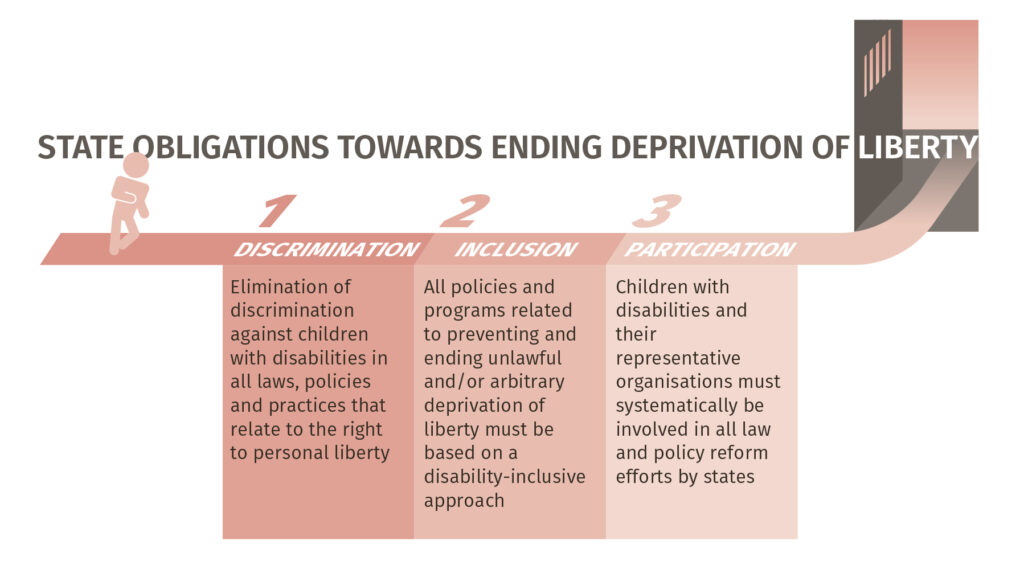Disabilities
Children with disabilities are overrepresented in mainstream settings of deprivation of liberty and their fate remains invisible.
It is currently estimated that one out of three children in institutions is a child with a disability, with Turkmenistan (84,5%) and China (80%) being the countries with most children with disabilities living in institutions in contrast to Jamaica (0,1%) or Argentina (2,6%).
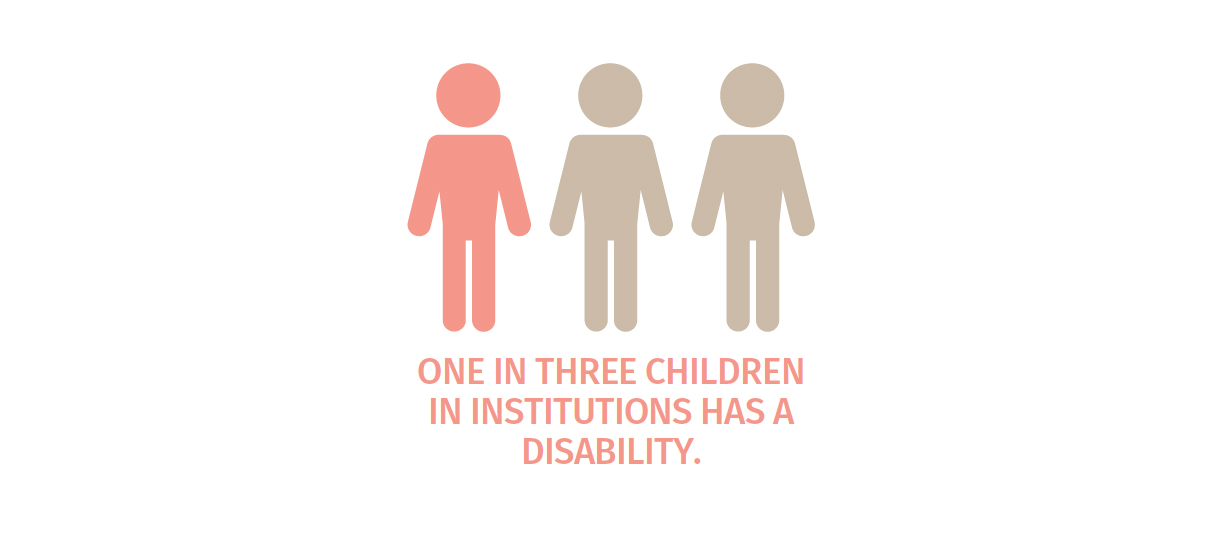
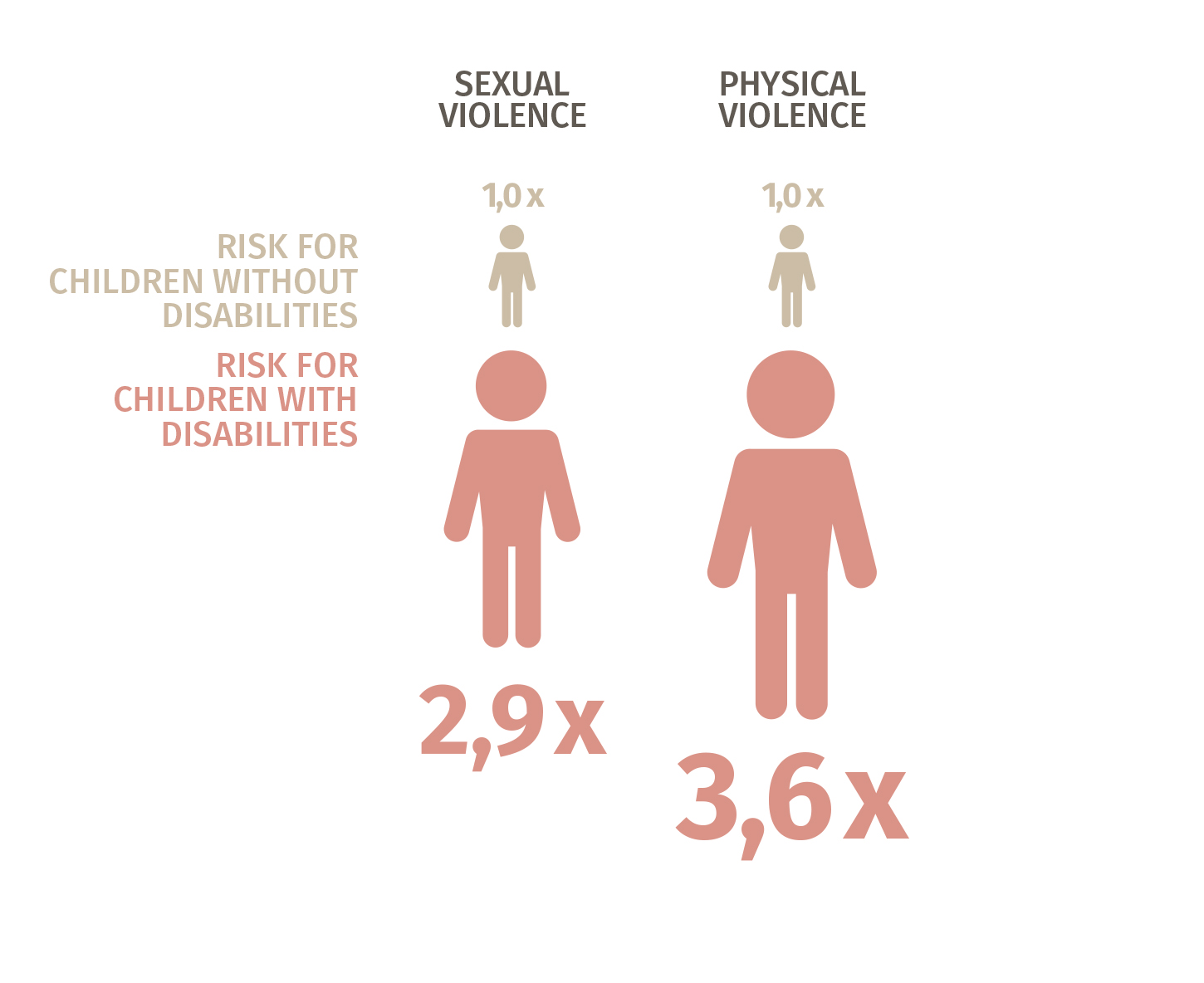
Institutions are often overcrowded, unsanitary, poorly resourced, not heated and lack appropriately trained staff. Under these circumstances, children with disabilities often experience profound neglect, malnutrition, and poor hygiene.
They also experience disability-specific forms of deprivation of liberty:
- institutionalisation on the basis of their disability,
- involuntary commitment to mental health regimes,
- compulsory referral from criminal justice systems to mental health facilities,
- deprivation of liberty within home settings.
While deprived of their liberty, children with disabilities are more likely to be subject to exploitation, violence, abuse, torture and other forms of ill-treatment. Girls with disabilities face an increased risk of violence, abuse and exploitation, particularly of a sexual and gender-based nature, including trafficking for forced labour or the sex industry, forced sterilisation, forced interventions and denial of sexual and reproductive rights.
Share of Children with Disabilities Living in Institutions in Selected Countries
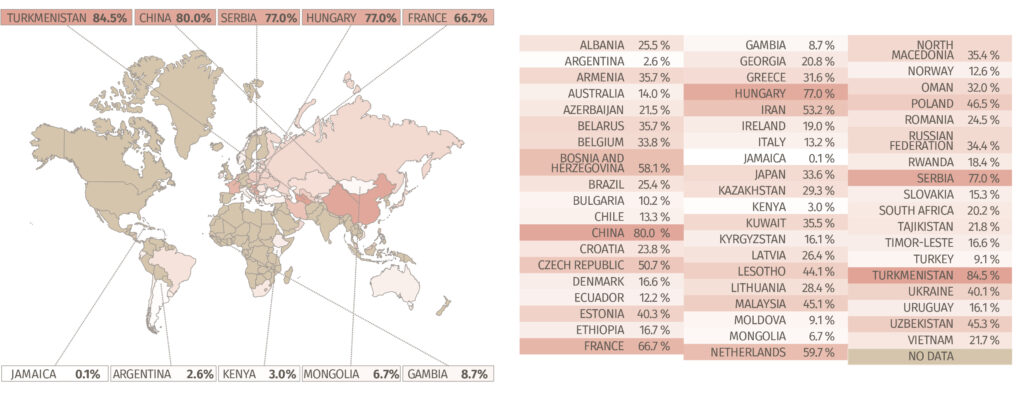
The Right to Personal Liberty of Children with Disabilities
Children with disabilities should have access to justice on an equal basis with others to challenge any deprivation of liberty. For that purpose, States must ensure that children with disabilities have access to procedural, age and gender appropriate accommodations, in all legal proceedings before, during and after trial. States must guarantee that children with disabilities who have experienced any form of arbitrary and/or unlawful deprivation of liberty and/or exploitation, violence or abuse in the context of such practices, have access to adequate redress and reparations, including restoration of their liberty, restitution, compensation and guarantees of non-repetition as appropriate. Measures designed to ensure non-repetition should include a wide range of institutional reforms to prevent future violations, including law reform, education and provision of community-based support.
The CRC, drawing on the ICCPR and the Convention against Torture (CAT), restates the obligation of States to ensure that no child is subjected to torture or other forms of ill-treatment.The CRPD reinforces and clarifies this obligation in respect of children with disabilities. Article 15 requires States to take all effective legislative, administrative, judicial or other measures to prevent children with disabilities, on an equal basis with other children, from being subjected to torture or other forms of ill-treatment.
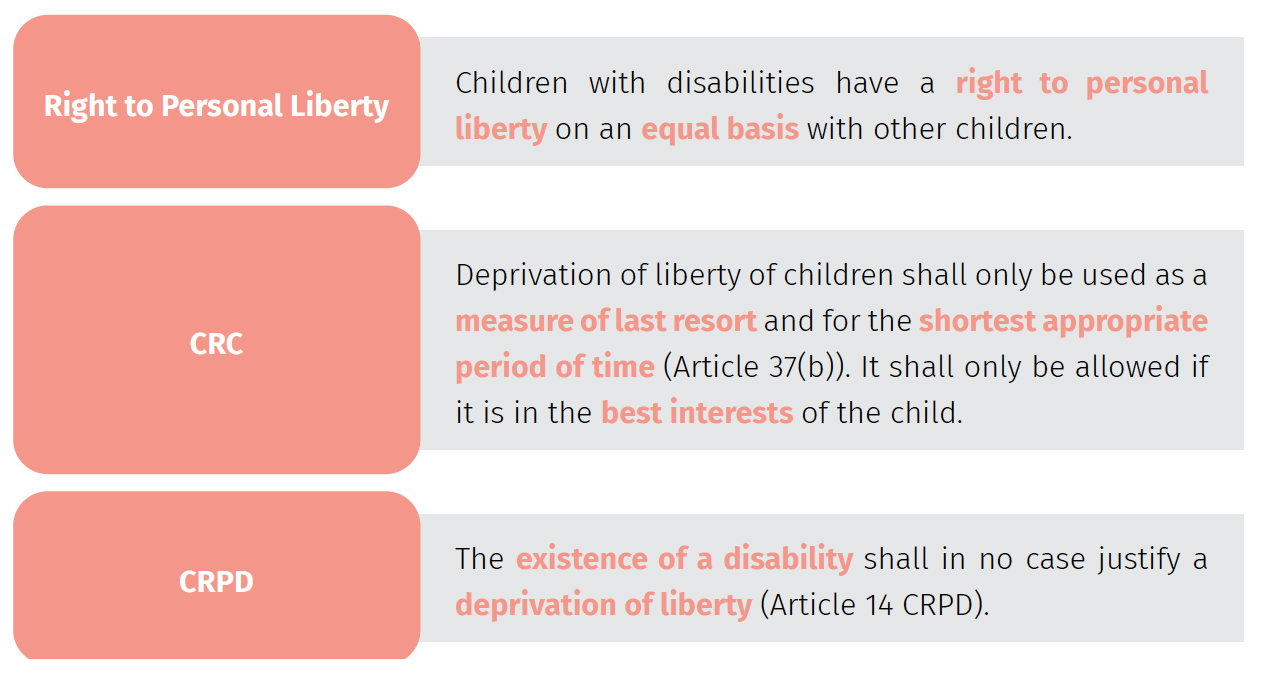
Ending Deprivation of Liberty of Children with Disabilities
States must mainstream the rights and needs of children with disabilities in all areas of law and policy which are directly or indirectly relevant to preventing and eliminating unlawful and/or arbitrary deprivation of liberty (including monitoring and enabling challenge of all deprivations of liberty). This includes, but is not limited to: child protection, social protection, social services, housing, health (including mental health), education, justice (including child justice), migration, national security and emergency and crisis responses. These mainstreaming efforts must be based on the foundational principles of non-discrimination, inclusion and participation.
